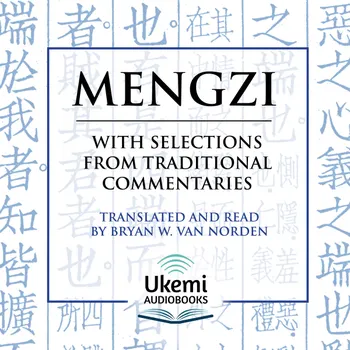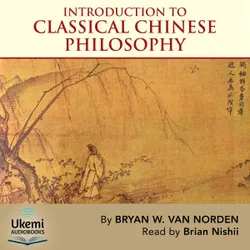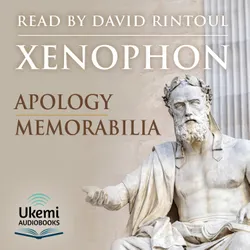The Mengzi is one of the very greatest works of world literature and philosophy, and it is perhaps the single most influential Confucian text of all time.
Of all the Confucian classics, it is also the one most likely to speak to a contemporary audience. The Mengzi contains the dialogues, debates and sayings of Mengzi, a Confucian sage of the fourth century BCE. (He is also known by the Latinization of his name, 'Mencius'.)
As Mengzi himself explains, Confucianism in his era was under attack by two rival philosophical schools, the egoism of Yang Zhu and the impartial consequentialism of Mozi. Yang Zhu argued that morality is an artificial deformation of human nature, which is naturally self-interested. At the other extreme, Mozi argued that a sage should aim to bring profit to everyone in the world impartially, caring no more for his own relatives than for complete strangers.
Mengzi argues that both of these approaches go against human nature. Contrary to what Yang Zhu’s egoism asserts, there is more to human nature than self-interest. Mengzi demonstrates this with his famous child-at-the-well thought experiment. Suppose someone were suddenly confronted with the sight of a child about to fall into a well. Any normal human in such a situation would have a feeling of alarm and compassion. Anyone who did not have such a reaction would be, literally, 'inhuman'.
The existence of this innate feeling of compassion, which Mengzi describes as the 'sprout' of the virtue of benevolence, disproves Yang Zhu’s simplistic egoism. While compassion for other humans is natural, Mengzi argues that it is equally natural to love one’s own friends and relatives more than strangers. Consequently, the impartiality demanded of Mohism is both impractical and unwarranted.
These arguments are just a small part of Mengzi’s subtle and fascinating worldview, which includes accounts of why people fail to be virtuous, what distinguishes genuine virtue from its semblances, and a political philosophy of 'benevolent government' that has contemporary relevance. This new translation of the Mengzi gives a flavor for the beauty of the original classical Chinese but is written in a lively English style that is accessible to contemporary listeners.
In addition, this translation is distinctive because it includes a running commentary. This commentary draws heavily upon the Collected Commentaries on the Four Books by the Song-dynasty Confucian Zhu Xi (1130-1200 CE). Zhu Xi’s commentary is both intrinsically insightful and historically influential, because it was the basis of the civil service examinations in China for almost 600 years. Consequently, generations of Chinese scholars literally committed to memory all of the Mengzi along with Zhu Xi’s commentary on it. Listeners to this audiobook will learn about Confucianism, will be exposed to one of the greatest works of world literature and will have a window into the heart of East Asian civilizations. Bryan Van Norden's new translation of the Mengzi (Mencius) is accurate, philosophically nuanced and fluent. He reads on this Ukemi recording with an informal and accessible authority.














Erik
2024-06-28
Enlightening and may help in strengthening spirit and resolve.
To write a review you need to download the app